Tax Tips to Boost School Experiences for Arizona Students
** Disclaimer: The participants in American Classroom are not Certified Public Accountants (CPA) or tax attorneys and this podcast is not intended to be accounting, tax, or legal advice. The information presented here is for general informational and educational purposes only and should not be taken as a substitute for professional tax advice. It is highly recommended that you consult with a qualified accounting, tax, and/or legal professional for personalized advice regarding your specific situation.
Jared Taylor: Welcome to the American Classroom Podcast, where we discuss the role of education and building an American civil society. I'm Jared Taylor, and with me is Lindsey Crosland. Today, we're going to be talking about tax credits with Rebecca Jennings. Thanks for being here with us.
Rebecca Jennings: Thank you. It's great to be here with you.
Jared Taylor: Let me just frame this up because not a lot of people know about tax credits, even though they've been around a long time, but we want to hear a little bit about your background. We'll get into a couple of questions. Okay.
Lindsey Crosland: Not just tax credits, but specifically we're talking about, ECA. Yeah.
Extracurricular credits in public schools.
Jared Taylor: Yeah. That's important because there's, It's fine. I don't know how many tax credits there are, there's some foster youth and there's some that are specific for private schools. So yes, thank you. We're talking about the public school tax credit, extracurricular activity, at least in Arizona.
But these are not uncommon in the union. There's a lot of tax credit policy out in other states. And as you look on the internet, you can see a whole bunch of them. A lot of them I found were for almost they're for reimbursement for school supplies. If you're a parent, you get a supply list, right?
And it could be 40 or 100 or something like that. So I think in Texas and another state or two, they had a way that you can submit your receipts and through their tax credit policy. In Arizona, which we're going to zero in on a little bit, it's more about extracurricular activities, so things above and beyond math, English, science, things like that, that might help students participate a little bit more effectively.
Anyway, it's going to be fun to talk a little bit about that. Rebecca, we know you know the space really well, but before we get into that, tell us a little bit about your background and we'll dig into tax credits here a little bit.
Rebecca Jennings: Okay. I have six kids and two of them are Heritage Academy graduates, which is, puts this podcast on, so it's fun to be here with you guys. And then I have two students who are still attending here, and then I have two younger children that both attend. But before they attended all those schools I just mentioned, they attended a charter school, a Montessori charter school, where we started using ECA tax credits.
And even before then, when I was in high school here in Mesa, Arizona, I was really active in the music program. And so we had a trip every year, we had a tour. And I remember when the state law was passed and we could start paying for my trips with my parents tax dollars for the state of Arizona. So that was a great help to a family that has seven kids to be able to pay for some of the, more expensive trips with tax credits.
It's fun to be repeating that now with my own kids. And I run a micro school in my home and I've lived in Mesa my whole life. Not born here, but I've lived here since I was newborn and I just love the people, love the place and a great place to live.
Jared Taylor: Nice. So you've benefited personally from ESE, not personally, but as you use them, which is great. And then for your children, and let's go from this angle. What, why do you think ECA, even though it's been around for a while, not that you're old, right? We're not dating yet.
Rebecca Jennings: I'm younger than you.
Jared Taylor: Yeah, that's true. Why is it still something that's fuzzy? Why do people not understand it and know how to use it even though it could be a great benefit for them and their families and their schools.
Rebecca Jennings: I think most people feel fuzzy in general about their taxes. I do, right? We just hope it all works out. We turn it over to our accountant. And since, you hear about money, you hear about taxes, those are subjects that sometimes people are really uncomfortable talking about anyway.
And the fact that those are tied up in ECA can be confusing for people. I think if you haven't had a kid in the school system, you've never heard of it. If you, whether you have aged out of that and your children, my parents knew about it because it came to be when I was still in high school.
But like my neighbors next door don't have any kids. They didn't know about it. Or if you're a grandparents who never had children in it, you just don't know about it. And so it feels foreign. It feels can that really happen? Does that really work? You mean I just, I donate to your school and then my taxes are reduced dollar for dollar.
I think they mix it up with deductions sometimes and they think yeah, of course, if I donate to a school, I'll get a small deduction, but people don't want that. They want a credit. This is a credit. And so I think just lack of knowledge. Most people don't quite trust the system because they haven't familiarized themselves with it.
Whereas when you're the beneficiary of it, like I was, it was just like, I know this works because my neighbor's ECA funds paid for me to go on my choir tour back in 1998.
Lindsey Crosland: So I'll give a personal example and then I know that you have examples of how you can not just do it with your own family, but community wide, support your kids on trips.
My daughter attend to public school. She has a swimming fee it's $200 a year. So I can use, as a single mom, I can use my $200, it's 200 per person, or 400 per family or per couple. So I can take my $200 and I pay for her swimming fee with my I write the check, but I pay it as an ECA tax credit.
Then I submit it with my taxes and then that 200 is then deducted. And essentially is zeroed out on my taxes. So I get it back. So I essentially directed where my state taxes were going and they were to the swim program specifically for my daughter's fees. If you direct it that way, or you can, I could have directed it to any, just a school in general.
That's just for one fee and for one student and from one family.
Rebecca Jennings: And there's never just one fee and there's never usually just one student.
Lindsey Crosland: Totally! But that's just like a simple example. Or, if she had a 25 fee, then I could have paid 25 of that 200 with ECA and then, added those fees together over the course of a calendar year. So from January 1 to December 31st of a calendar year. So do you want to explain how have you used it when there's a larger fee than 200 and how you rallied your neighborhood?
Rebecca Jennings: We've had lots of kids do lots of trips. And in addition to the trips, there's usually swimming fees and softball fees and dance fees and family and consumer sciences fees.
There's just all these fees for classes. And all of those qualify for ECA as ECA fees. And so they can all be paid for with people's ECA tax donations. So we've gotten creative sometimes over the years, especially when there's been a larger trip and we've had multiple children going on it, in the thousands of dollars of range.
We've reached out, of course, to grandparents, but we're not their only grandkids, so you have to get more creative than just your grandparents and aunts and uncles. Chances are most of your aunts and uncles, maybe they have kids too. So where they might live out of state or they might live out of state.
Yeah. We're lucky. All of our siblings live in town and we have a lot of siblings between myself and my husband, but they've got kids too. So we found the ones that don't have kids in the school system yet. My sister has a three year old and a one year old. So they don't have kids in public school yet, so she's super happy to direct her tax dollars for my children.
So we've done that. We've also reached out to some of our aunts and uncles, like myself, my aunts and uncles who live in town, and my husband's aunts and uncles, people that we see, multiple times a year for big family get togethers. I once, so tacky, but I literally brought the ECA forms one night to our family Christmas gathering, where I knew all of my husband's aunts and uncles, who all their kids were out of the school system now.
And I knew that they probably didn't have grandkids who were asking for this. Some of them did already. And I was so happy to reaffirm like, yes, donate to your grandkids school. But if not, hey, do you want to fund my kid's thing? And I would show that to them. We've also reached out to neighbors neighbors who are single, so they don't have children.
Neighbors whose children have aged out of the system, so they already know it and they're familiar and they're just so happy to write that check. Or make, and so great now you can do an online donation. You don't even have to worry about your check being in the mail. It's really nice. You just pay it online now, most schools will have a link to it for you. I know Heritage makes it really nice and easy and validates it for people because you can go to your website, you can click donate and all the information is there for you. And I appreciate that because I think it builds people's confidence.
Other things my children have done, they've put together emails, sometimes with my help, sometimes without my help, when, by the time they're about ninth, 10th grade, I feel like they can put together a pretty good email.
This says, Hey, I'm so and and this is my sister. And thank you for your support in years past. Here's what we've done with some of your money in years past. Here's what your fees have done. And this year. We have this trip going on and we're wondering if you can do this and my kids would always put in, of course the purpose they put in the steps of how to do it. They usually link to the school site. So it's really easy for people to use. Frequently we'll just link the Arizona Department of whatever tax thing. I looked it up last night. You can find it. If you just Google Arizona ECA tax donation, it's there, anybody wants to double check this. And so it just builds people's confidence.
We try to make it as easy as possible. And I'm always surprised at sometimes the people who donate. So my kid's great aunt donates every year for them. She's a school nurse for the Mesa Public Schools. So she's really familiar with it and her kids are all out of it and her grandkids aren't old enough to take advantage of it yet.
So she's helped us out every year. So if you can, if you're comfortable, or even if you're a little uncomfortable, but getting creative with people who know you and trust you already, then it's a lot easier to ask because you're not just going to someone random and saying, Hey, will you donate 400? And I promise it will come back on your taxes if you remember to tell your accountant.
That, that can feel shady to someone even though it's not. But if you have trusted neighbors, people from your community congregations or church congregations, your family, whatever they are, those people already know you and they know you're not trying to scam them. So that can be really helpful. And I've asked my kids to do the legwork for that.
I'll tell them, I won't give you the email addresses of people, but this is going out from your email account. There's a few people that, because you don't know them, I will personally send it to them for you. But this person and this person, you're sending it to. They've asked church youth leaders to do it for them.
I also ask them to keep track. We haven't done a perfect job of that, but it really helps you if you can keep track of who you sent that to from year to year, so that when you're trying to get creative or if you've missed a year of doing it, I'll ask the kids. Who did you donate to? Or who did you ask two years ago?
And they see that list and they're like, oh, yeah. And then I get a receipt every time a donation comes through to the school I think that's standard procedure. So I see who donated. And so I, if I'm really on top of it, which I'm usually not, but sometimes I am, I can remember from year to year, I'll look up and say, oh yeah, that person donated so you make sure you reach out to that person and make sure you also give a really nice thank you as you're asking again, because It's just really cool of them to be supportive like that year after year.
Jared Taylor: Before my girls were in the school system, there was a big band family in my neighborhood. And we would give the tax credit to them and we would get an apple pie.
Yes. I would buy 250 apple pie. That's what they were asking for, but. I want to say a couple things. One is you talked about out of state. One thing that needs to be clear is if you're applying for a state tax credit, you need to have state tax liability. So they can be out of state. We actually had some family in Singapore, but they had an Arizona tax liability, even though they were an expatriate. They did have a tax liability, so they could do that offset.
Rebecca Jennings: So not just any state tax liability, you're saying it's important that it's an Arizona state tax liability to do.
Jared Taylor: Yeah. If you're doing it in Arizona or the other states. So the other thing is do talk to your accountant about it. Do talk to your CPA.
They may be helping you prep or somebody to just learn a little bit about it. They probably have a list and this is probably on their list because they want you to get the credits and deductions that you want.
Rebecca Jennings: And it benefits you twice actually, because while you can take it off as a credit on your Arizona state income taxes.
It also comes off as a deduction on your federal income taxes. So it's not a huge deduction, but that, percentage of tax you would have paid on that money you donated to your kid's school also benefits you there. So that's just an extra perk.
Jared Taylor: And I'll also just remind the listeners here that we're not CPAs and we're not tax attorneys and we're not giving advice.
So everything we say, we encourage you to talk to your CPA, talk to your tax preparer. And just double check it to make sure you have the liability and laws do change over time. We're doing this in January of 2024. And I hope to your point earlier, about 400 used to go a long way. If we, if there is a policymaker that's listening to this.
Rebecca Jennings: Yeah. In 1998, I know it was leased that year because that was, I was in high school, 98 And it could have been a little bit earlier than it started, probably when I was in junior high. But yeah, it was 400 then and it's still 400 now. So this is a lot of years later.
Jared Taylor: And other tax credits have bumped up a little bit.
Rebecca Jennings: Yeah, this is the smallest tax credit actually in the state of Arizona, of the five. I was going to say, when you recommended calling your account, I got on the phone with mine this morning actually, because I wanted to check one of the finer points. It used to be, if you accidentally over donated, let's say your tax liability, wasn't high enough to donate 400 or you donated to multiple Arizona tax credits, used to be able to roll that over from year to year.
And that is no longer the case. So that's an important thing to note because that has changed. I want to say in the last, according to my account in the last two years.
Lindsey Crosland: It would have just had to change this year because last year, my accountant said you have 800 in this to utilize that's just like pending that's rolled over.
So if that goes away, that's good to know.
Rebecca Jennings: Yeah. So it's not. So moving forward, just be careful with your, obviously it's always good to give to anywhere you love, but if you're doing it strictly for the tax credits, if you're only giving to that foster care organization or something for the tax credit, get your Arizona tax liability first and then make your donation.
Jared Taylor: You talked about Christmas time. And you felt bad about it. I think that's a smart strategy because a lot of people are starting to think about it and gather their documents and some people don't have the cash flow to maybe float that. But hey, if they know that they can do that in December and they're going to be filing in the next month or two, then they're not out the cash all that much and it's actually beneficial because they want to give and they want to direct their taxes to places that they love.
Rebecca Jennings: Yeah. That they love. Yeah. And you actually don't have to be out of it at all because, very short time. In Arizona. I don't know how it is in other states, at least for all the tax credits, the state tax credits. You can make those through April 15th for the previous tax year. So it gets a little confusing sometimes which year you made the donation for.
I know sometimes I've struggled with that, but it can really help you if you've met with your accountant, if you're sitting across the table or if you've done your own TurboTax preparation and you see your liability is $ 437 and you haven't done any credits yet. Great. You've got all 400 to give to a school, right?
That check, find the correct line to put it on your Arizona tax and markets for the previous year. And then you're not even out the money.
Jared Taylor: And you can stack another one on it for that year too. And with that, and it's not the school's job to do all the tax work, right?
That's still the individual's job to do, to prepare the tax finance. They'll just give you the receipts of how much. And then you apply it to whatever tax year is appropriate.
Lindsey Crosland: So if you don't have a student, if you don't know one in particular in a public school, but you hear that the local school is.
You just write that check, find out your liability. You write it toward the local public school and then you can donate that one year or year over year. So I think it's good to understand that you don't have to know a specific individual. It's just to go toward that school's extracurricular program.
The nice thing is you can direct it to a student should you know of one. So like your example on trips. I was just going to say, if my daughter knows next year, she wants to go, she's taking Spanish classes. She wants to go on the trip to Puerto Rico. That's like a cultural immersion and this really cool experience, but it's maybe it's $1,500.
So then I know, all right I can donate my 200. We're going to have to find some family to, contribute what they can, whether it's 20 of their tax ECA credit, or it's the full 400. So we can make a spreadsheet and figure out, and then figure out if she needs to babysit or how much she needs to earn on her own to get to that 1, 500 so she can go on a trip to cover what I can't.
And so I love that, you can get to the number you need for these extracurricular programs that really enrich students high school experience or elementary experience, depending on the program just through these, directing your tax dollars.
Jared Taylor: And you can even zoom out one level and just give it to a school, right? Yeah. Instead of a school program or a. A student or scholar in the program. And they'll put it where it needs to go. There's lots of people that don't have children in an education system, but they want to support it because they love it.
Rebecca Jennings: And it doesn't cost them anything. That's the beauty. It really doesn't cost them anything except for a few minutes of time to figure it out and then remember and put it on your taxes. I think in reference to your point about like your daughter's hypothetical situation, sometimes we think of it, you mentioned Christmas as being, okay, that's the end of year.
People are thinking about taxes and we're. It is interesting because there usually is a big push for end of year giving for everything. But we have this weird extension in Arizona where you can go through April 15th for these. So truly the best time to ask is usually this time of year, January through April of the current year for the last tax year.
We're getting their taxes right now. Because in August, people are a little stressed out. They're thinking, I don't, oh now this kid is asking me for this money for this choir tour they're going to go on later. But they're thinking, I'm going to be at my money for a while, and that, that can really be a hard thing.
Cash flow might be a hard thing for some people. And if you can be proactive and help your student think about it, even though we all know April and May are crazy months if you have anybody in school. It's a great time to ask people because not May. April is a great time to ask in the months before.
Because it really helps people out by not having them be out of their money for very long. So I feel like it's an easier sell for people and they get that turnaround really fast. It's easy for them to remember to tell their accountant that they did it if it's a first time thing for them. So it's just a kinder way to make money.
Jared Taylor: I love some of your strategies. It reminded me of one another school system did and they would do phone banks for tax credits. So they would bring in the soccer team or a basketball team or whatever it is. And they would say, and we've done this too at Heritage, and it works really well. We said, okay, bring a list of 20 people.
And on a Friday, because Heritage is a four day block. So Friday they all came in. And they, and we said, just call down those 20 people and just explain it. We give them a little script that they read to just introduce themselves, what they're looking to raise money for, how this works, just very briefly and got to get a pledge.
Would you be willing to give a tax credit? Great. How much can I put you down for? We worked them through it because young people really aren't comfortable on the telephone.
Lindsey Crosland: Sometimes they haven't done much fundraising, so they don't understand about asking for support in a program.
Jared Taylor: We need to come up with a tech strategy. I was going to say, I'm not even Get them on the phone.
Rebecca Jennings: Sometimes on the phone, but I'm not comfortable asking people for money on the phone. So I would much rather do, a text thing or a email. That's why my kids always did it that way. Because then you know, you're going to catch people when they can't read it.
And it's not going to be a bad moment, not to knock that at all. But if the kid has a low comfort level or Does it feel good talking on the phone or maybe they stumble to read stuff or get nervous. That's okay. They can have a well prepared email. You can even, there's so much cool technology now, kids could make a cute little video of themselves explaining it, they've practiced and put that in an email or text it out to their family and friends with just the applicable link beneath it.
I think the thing is to find a way that feels. My kid is working at least as hard as I am for this, because this is for them. Yes, it benefits me, but especially when it's a trip, there, there's a certain amount I'll pay, but once it comes over, a certain amount, I'm like, that's yours to figure out and I will help you.
But I want you to have at least as much skin in the game as I do. This isn't just for me. And I think that helps build, like you're talking about, we're not just about getting money for kids. It's about building America's citizens. And I think that's part of it is we all contribute, we all help.
No one else just does all the work for me, but I do have a lot of grace and a lot of help from the people who are helping me.
Jared Taylor: Yeah. And I think that's great. That creativity is awesome. I thought the genius in that idea is to just bring him in at one setting and get it, get it done, whatever that is.
Rebecca Jennings: And the peer, positive peer pressure of we're all doing it together. It's all a little weird and that's okay.
Jared Taylor: And then the coaches are chasing like, have you paid your fees or has the, it just gets done. And then you also have a stable of people that just want to help because there's certain economic distress that everybody has in their school communities.
And anyways, but yeah, there's great strategies.
Lindsey Crosland: I feel like there's a couple of things one student should, if you need tactics for going out and asking, right first, I think the best approach is to say what the program or class that you're looking for support, tax support. Why you want to do it and what you think you're going to gain out of it.
So instead of just, I think students are like, I'm not just going to knock on the door and be like. I need some money can you give me your tax credit? But to say there's this trip coming up that I can, attend with my school and this is what I get to learn. This is where we're going to go and this we're going to do.
Maybe you can give them a picture or like an itinerary. And if you're willing, you can give, one to 400 of your family's tax credit and apply it toward this purpose. I think that sharing, the students can start with, what are you doing? And why do you want to go? Start with that and start the conversation with your neighbor or your grandma.
And then explain the tax credit program and maybe have a little script that's concise because I really feel like that's an obstacle for people understanding that it's the dollar per dollar back. And then I'm sure you guys have other tactics as well, but just be able to just say like, where do you want to do?
And now in the age of GoFundMe is where you just Facebook a link, Facebook share link of GoFundMe for whatever program people give, five, 10, a hundred dollars to someone's football camp. ECA takes a little more explanation, but it's also a lot larger donation at a time that really doesn't cost the person much.
So it's worth the extra effort and not just sharing a GoFundMe link.
Rebecca Jennings: I think that's really powerful to help kids understand and families too, because when you do have, we've had a few trips to Hawaii, for example, at, for school things fine arts trips, and we had two kids going on it that year and well over $2,000 each.
But to spell that out to a kid, it's all you need to get really is five people because it was two thousand and some odd dollars. You need to get five married people or, a mix of married and single filers to do this for you. And five people, two thousand dollars sounds big to a kid. It sounds big to me.
But five people doesn't sound that big. Five people sounds like, oh, those neighbors that next door don't have kids. My church youth group leader, whose kids are too young, but they own their own business. And so I bet, they're saavy enough to do this or, there are some people that they have relationships with and then like you said, to let them know what you're doing. And I've had my kids send follow up thank you letters before . Take a picture of, here's get a picture of you from the trip and send out that postcard to those people.
Jared Taylor: At least the people that love them and want to support them. They just don't know how besides a pat on the back or a compliment, which is great. Some have means, but they do want to support and they just need a little
Rebecca Jennings: ask.
And something to talk about. Sometimes that's an obstacle with youth. What can we talk about? I want to be an impactful part of this kid's life.
But I don't really have that much to say to them. I'm not their parent, and I wouldn't say the things they're about to say to them anyway, right? But they want something to talk about, and now they know, oh, you're in the choir program, or you play in a band, or you're on the football team. Whatever that ECA fee is going to, they have something to talk about.
They can ask about the trip, they can ask about the camp. I don't know, it just, I feel like it really does engender a sense of community and trust. And we all need more of that, more community and more trust.
Jared Taylor: Think about what we're trying to do with American schools, right? We want them to travel. We want them to see and visit places like Williamsburg or Boston and walk the Freedom Trail or Philadelphia, right?
A lot, there's a lot of people that don't get outside of Arizona. They don't even visit the Grand Canyon, even if they live it. But the tools like a tax credit do give them a ticket to go out and see. And an educated American, it's not just book learning it's going out and seeing things.
It's being, having a good background in the arts. It has a good athletic experience, right? It's a very well rounded, we're not an education system that's very narrow and in only one or two key subjects, we want them to have broad repertoire of experiences and knowledge to be a well rounded American to, be able to go contribute in the world.
This is one little tool that a lot of people aren't taking advantage of and their children are not getting that full experience of an American education. But as we wrap up here any last things that you want to say on this topic? I appreciate you adding some color and some stories to, to this little tiny obscure thing in education that really opens up a big world.
Rebecca Jennings: I thought of one thing as you were talking about Williamsburg. My daughter, at the beginning of this school year, so 2023, she decided very last minute, Mom, can I go on the history tour? And the history tour is like $2,100 or something. And all the money was due either before she even asked me or within five or six days after.
So I said, yeah. And we put the email together. She made a plan of who she was going to reach out to, of who she was actually going to hand deliver a letter to with a QR code on so they could scan that, heritage. And within five days, she had all the funds she needed to go on that tour. And it was a little bit of work.
It took a few hours out of my schedule that week, right? And parents are busy. We get that. It definitely was a good hourly rate. And it was neat that she saw, okay, if I work for this is a possibility. This is an option. Like you said, it opens doors for a broader education than might be opened to most of our children.
And I appreciate that the state of Arizona has done that.
Jared Taylor: That's good. Any, anything you want to say as we wrap up here?
Lindsey Crosland: I was just gonna say, a thank you is so important. Even though really it is dollar for dollar, you get it back, the effort it takes to just, write that check or go online and get your bank information, I think deserves a thank you.
And I think it's really important for our students to understand that's that follow up part of, going in fundraising. A lot of Neighbors and family never receive a thank you, but I think that's so beneficial. And you'd mentioned you used to get an apple pie. So I just think that's great. And then it's, top of mind too. And not only maybe a neighbor child or a family member of what they're doing and to follow up with them. But anyway, so I was just going to say, I think he was so important.
And then, I have a good friend who his children are out of public school now, but he really likes making that donation to a public school and always asks, do you, would your child, could your child or the school use this ECA donation? Of course the answer is always yes, the school, whatever school you want to donate to, but if you'd like to donate to my children's school, that's fantastic.
And just when they're doing their taxes each year, they're like, oh yeah, what about that? That's an ECA tax donation. The more you ask, the more it just stays on top of mind, and I think it can help all of our public schools in Arizona.
Jared Taylor: Becca, thank you. You're welcome.
This was fun to have a little conversation, and those that are listening here, we encourage you to, whatever state you're in, look it up. Probably the easiest way is just call your CPA, and they'll have the list of tax credits and the ones for school. We encourage everybody. And find their local school, whatever it is, and find a neighborhood person and maybe give it a little bit of emphasis on a family that might have a little economic distress or someone, they're maybe prioritize their children because that would be such a blessing for them to get it because we want them to have the full American education experience. And this is one, one little tool that can happen. So hopefully this gives some people some ideas and things to do, please.
Lindsey Crosland: Yeah. And if you can't find it on the state, we have a link from heritage Academy website.
So if you go to HeritageAcademyAz.com and click on giving, there's a tax credit, drop down from the menu and that gives all the information, the links to the state website on the language. So if you want to learn more or you want to donate to a extracurricular program at Heritage Academy that's a place to find some resources.
Jared Taylor: Yeah, let's make sure we put that in the show notes so people can link in there, but those of you that are listening, thank you. Appreciate you spending the time with us. Your most valuable possession, and we appreciate that. We would appreciate any five star ranking on whatever you listen to your podcasts on. Spotify or Apple Podcasts or anything there. And appreciate any comments that we have on this, and thank you again for listening.

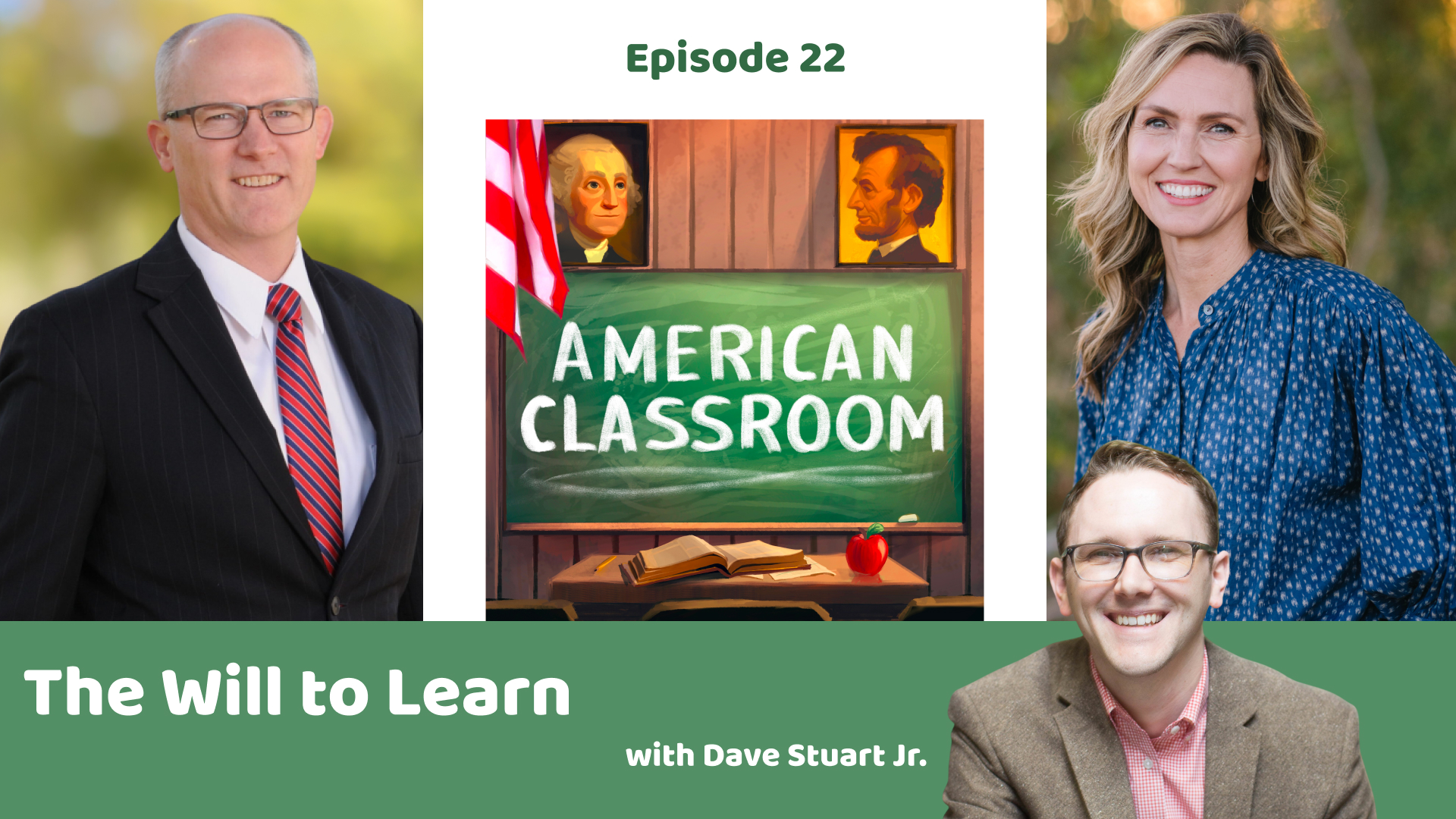
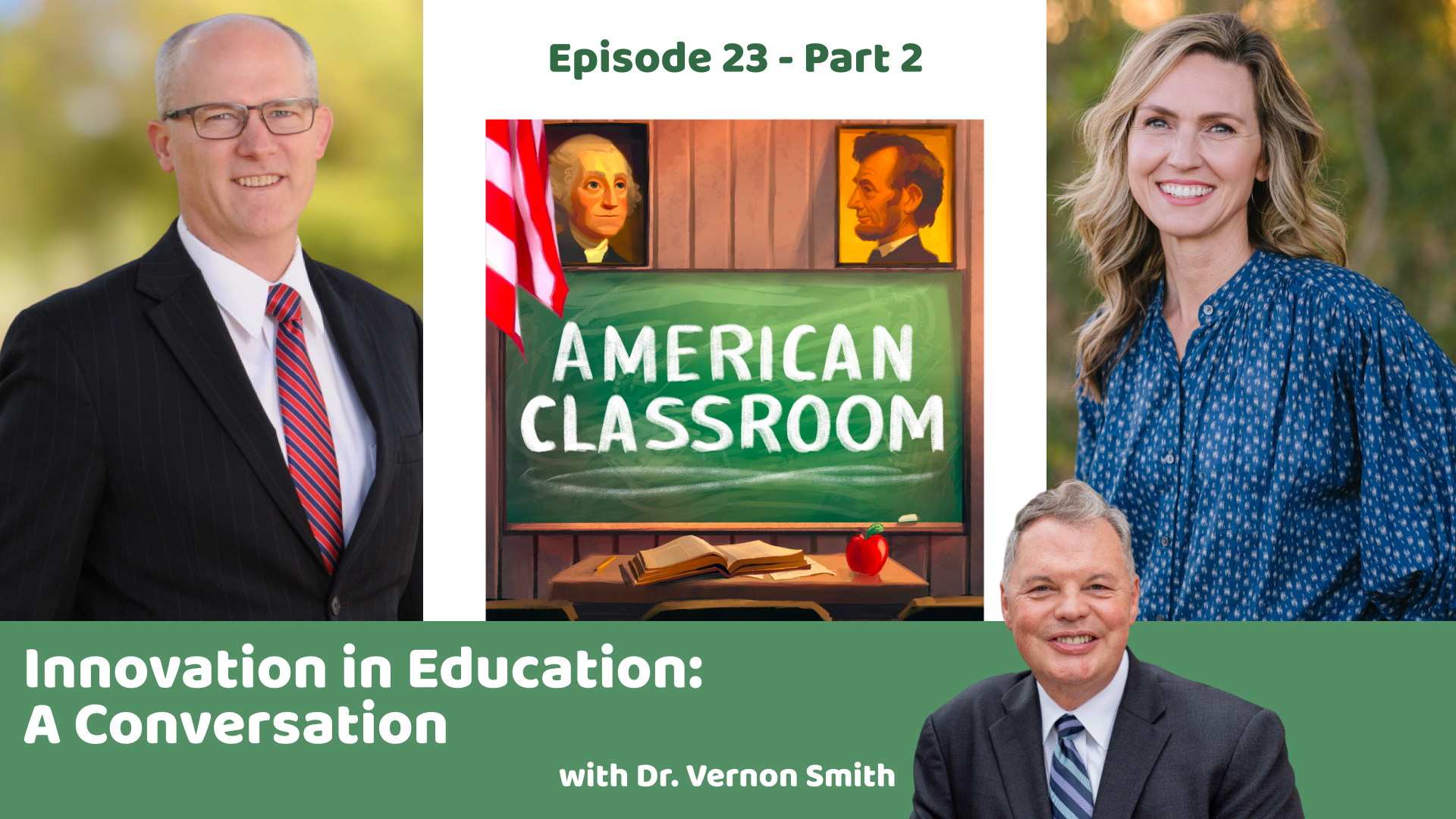
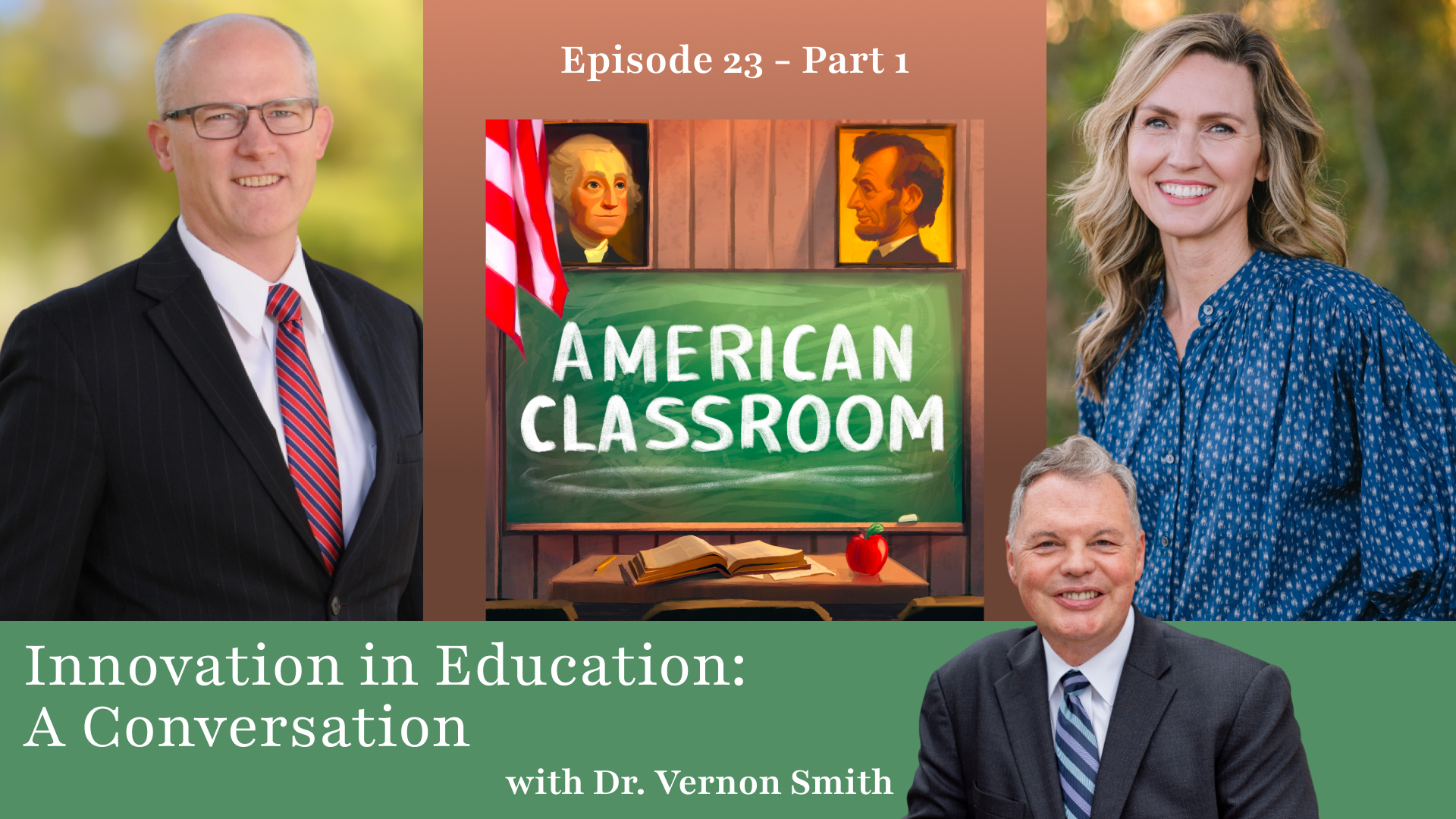
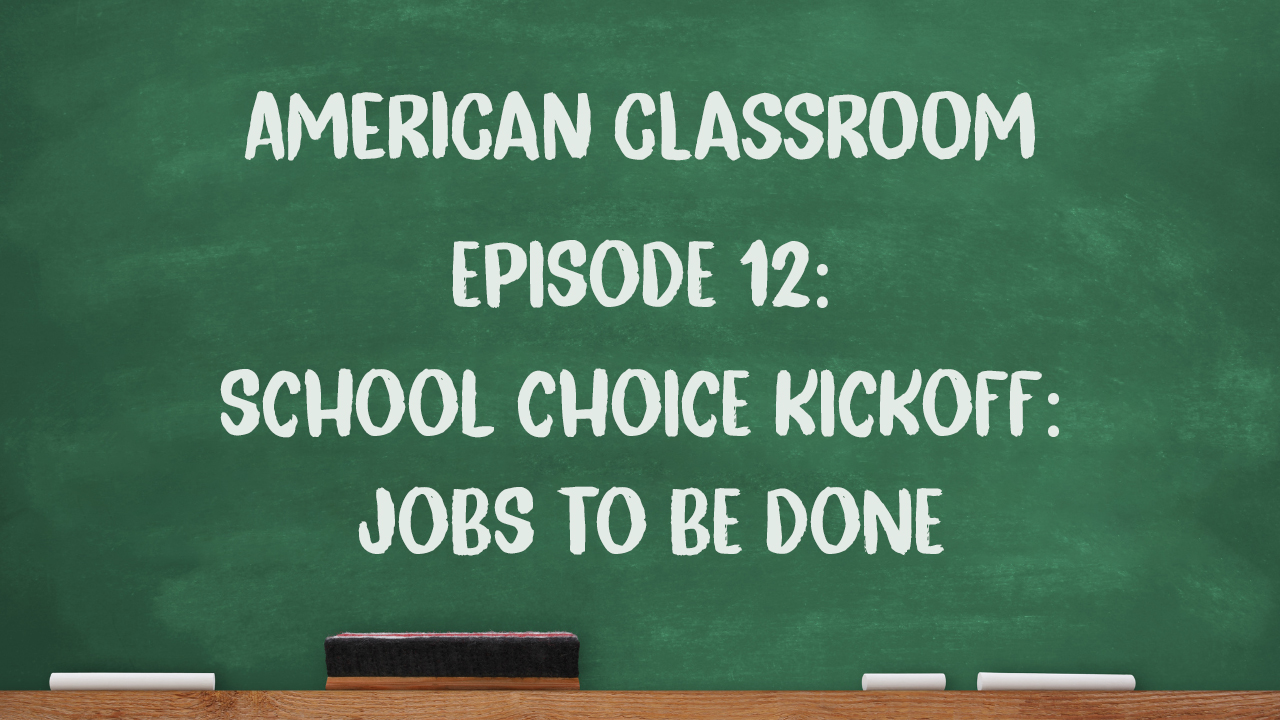
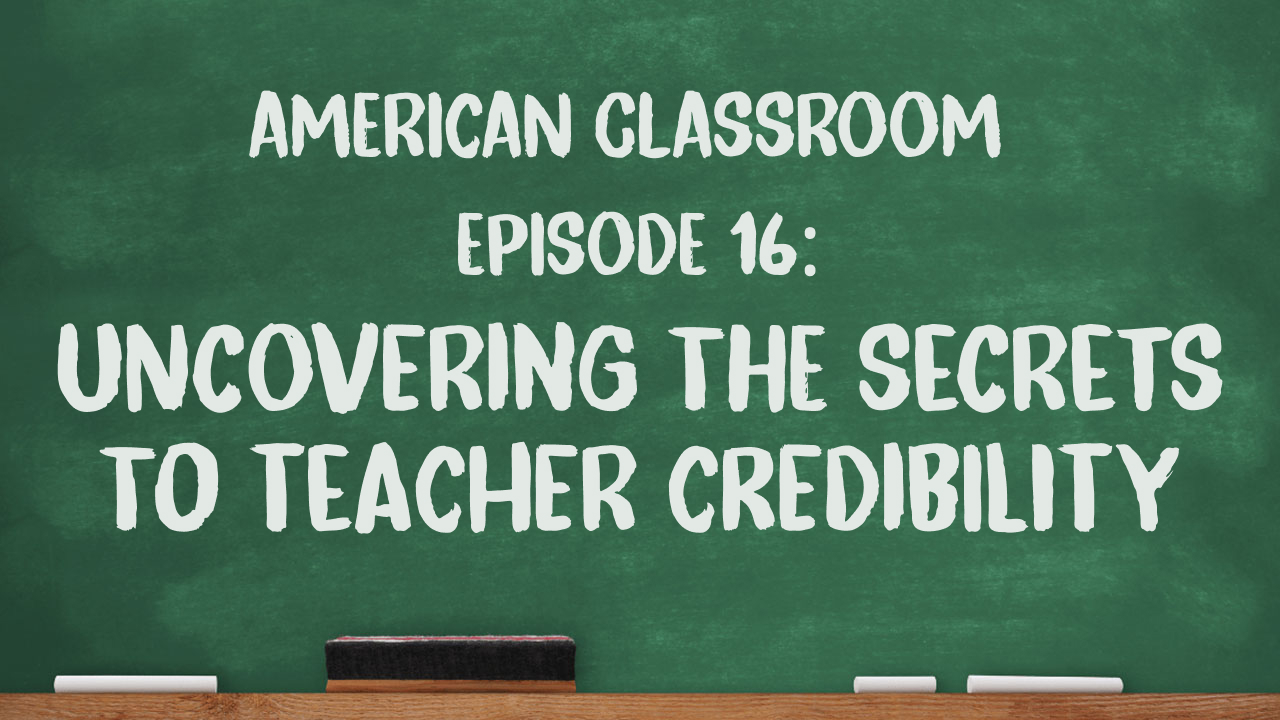
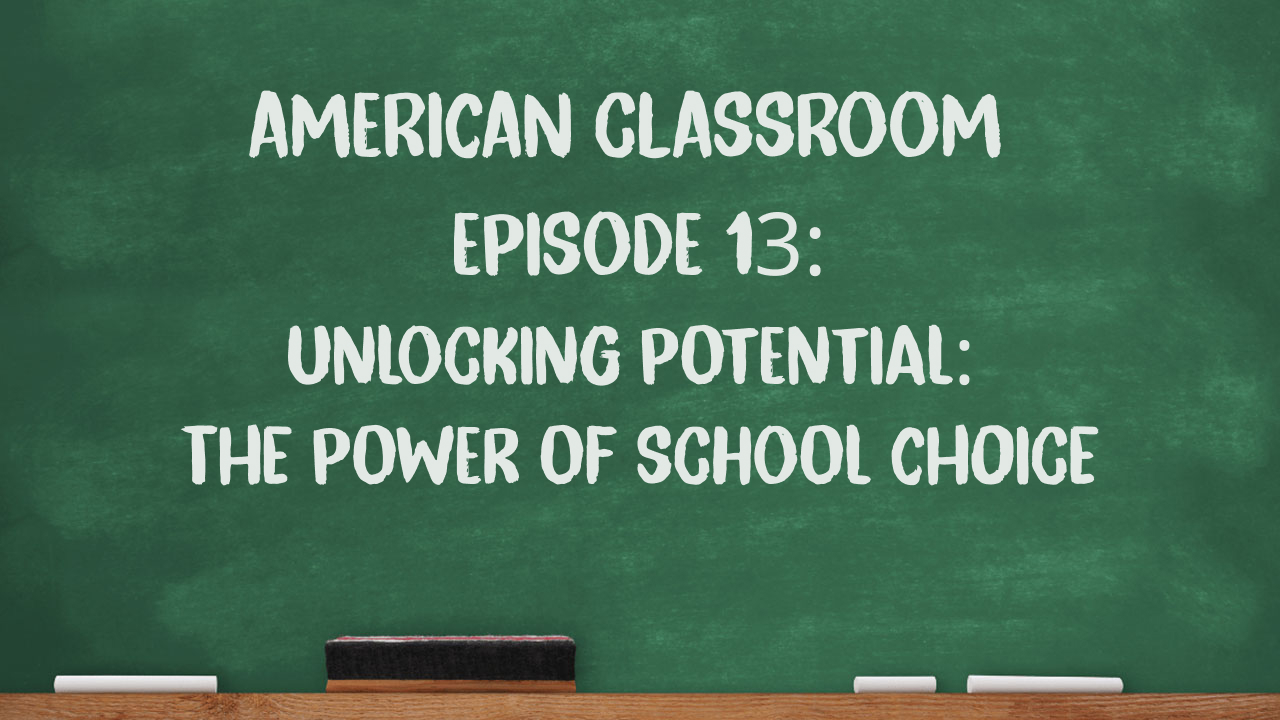
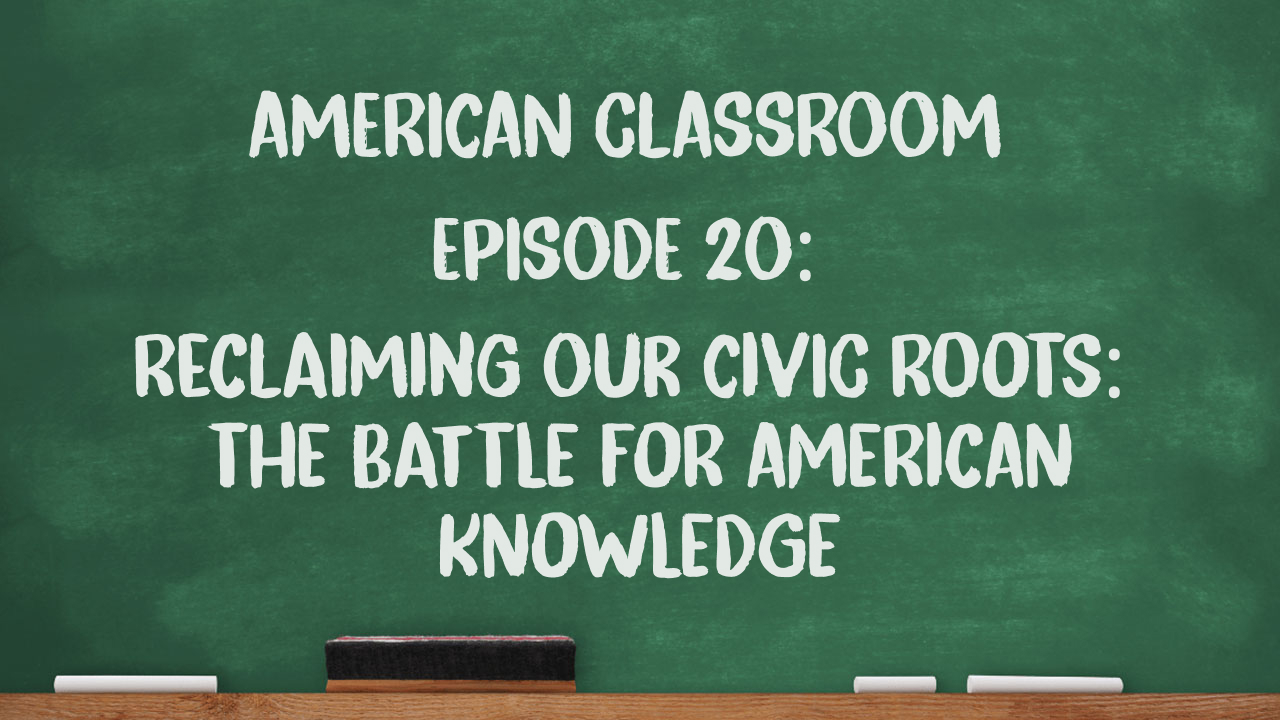
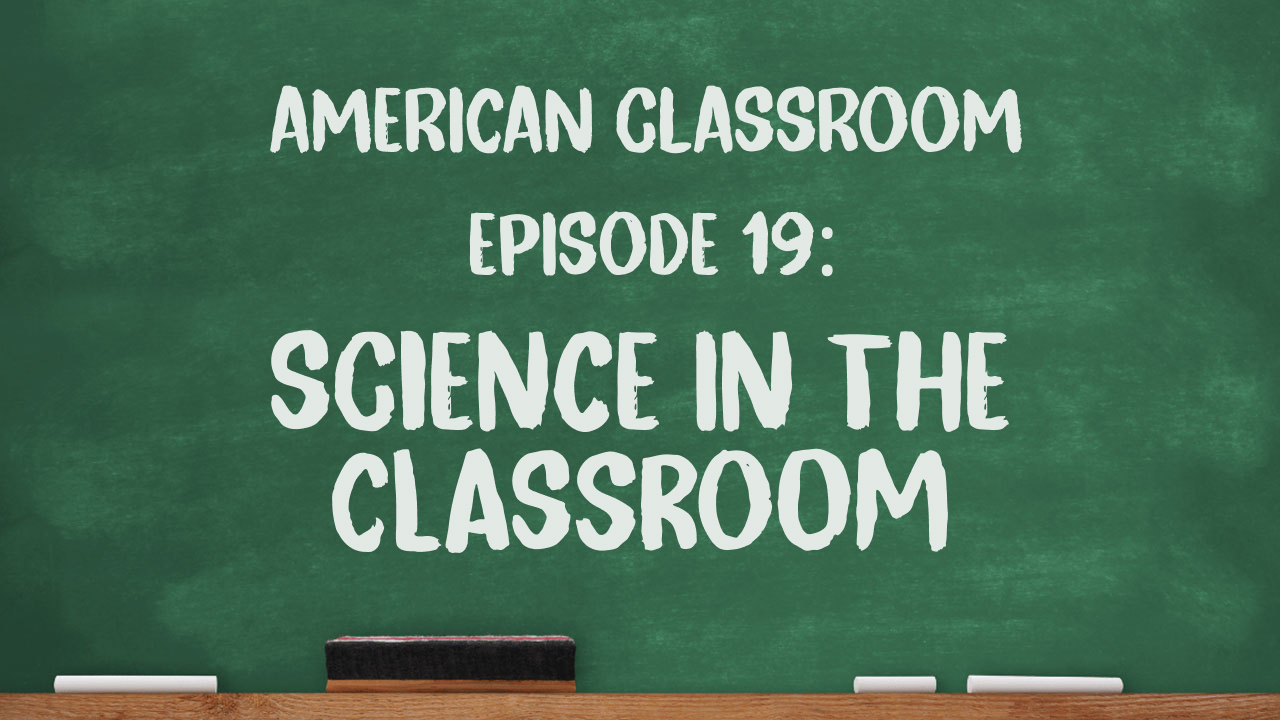
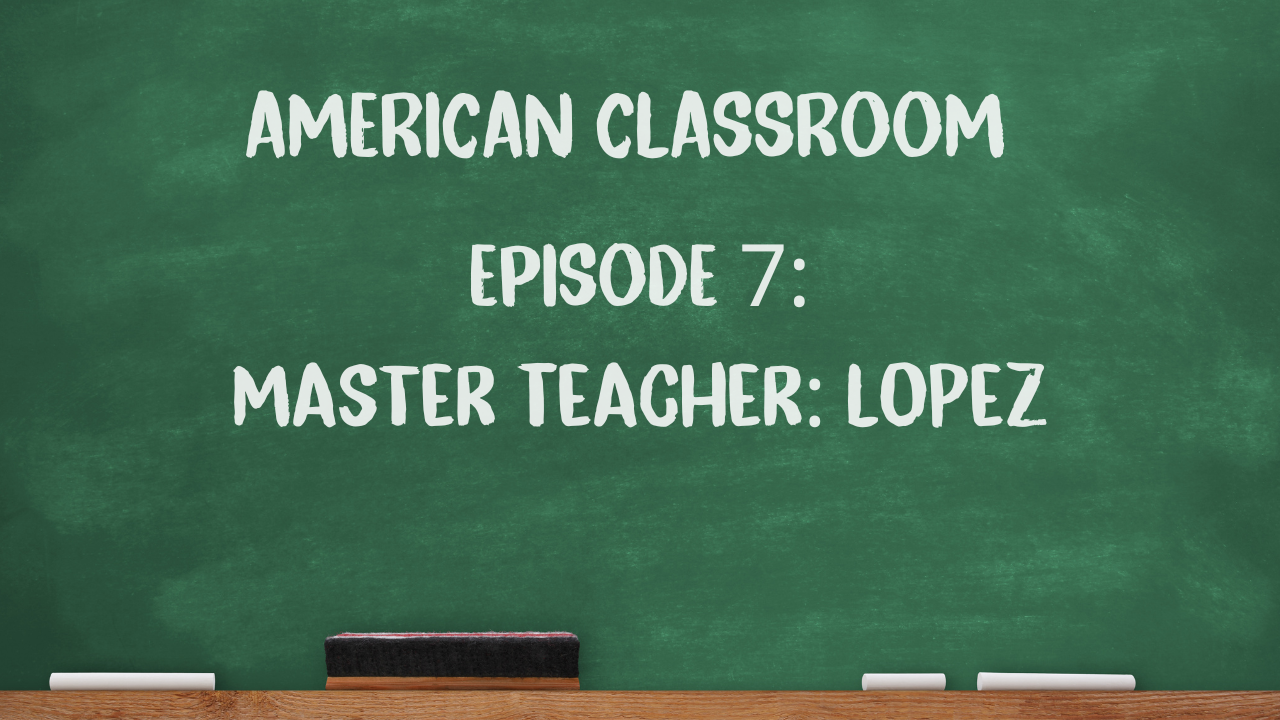
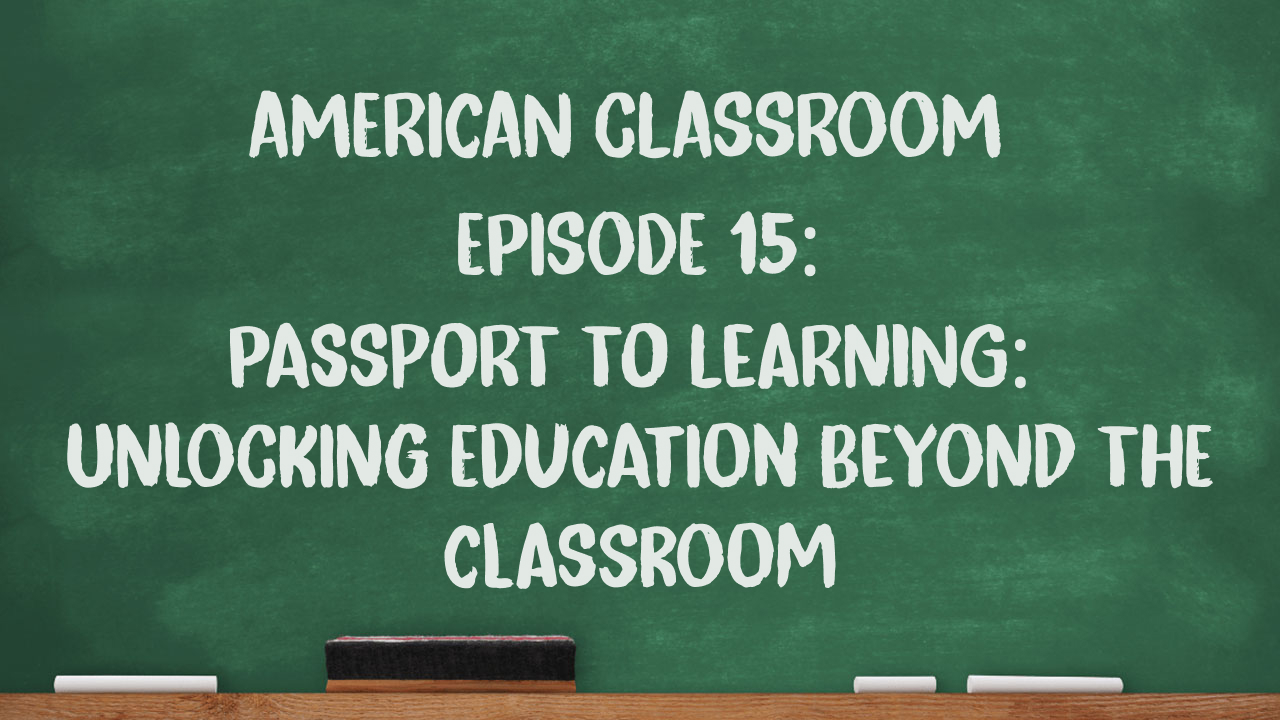
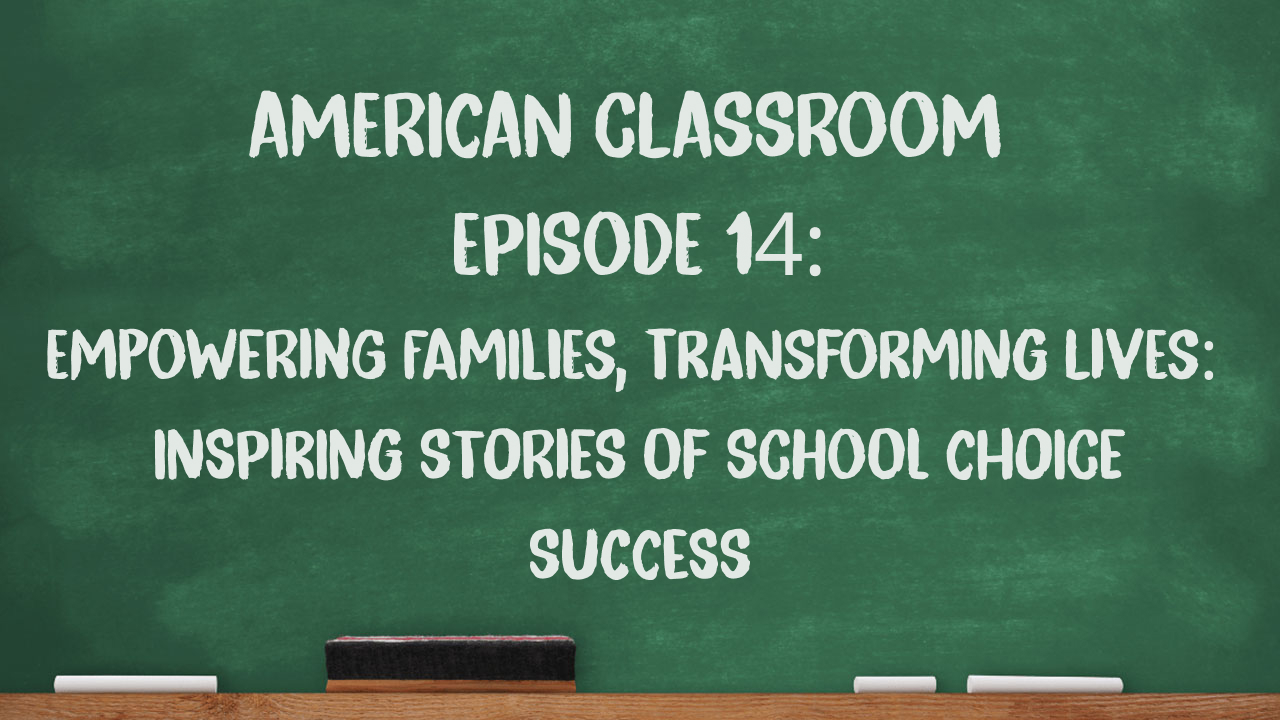
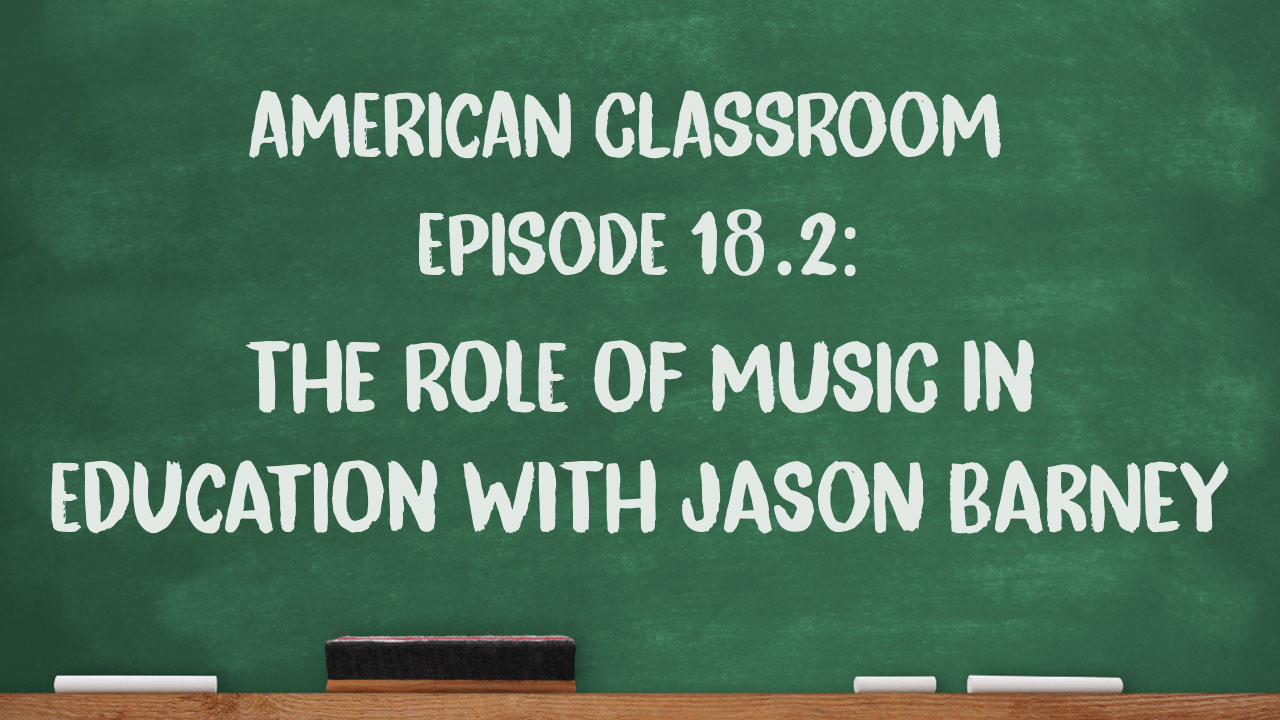
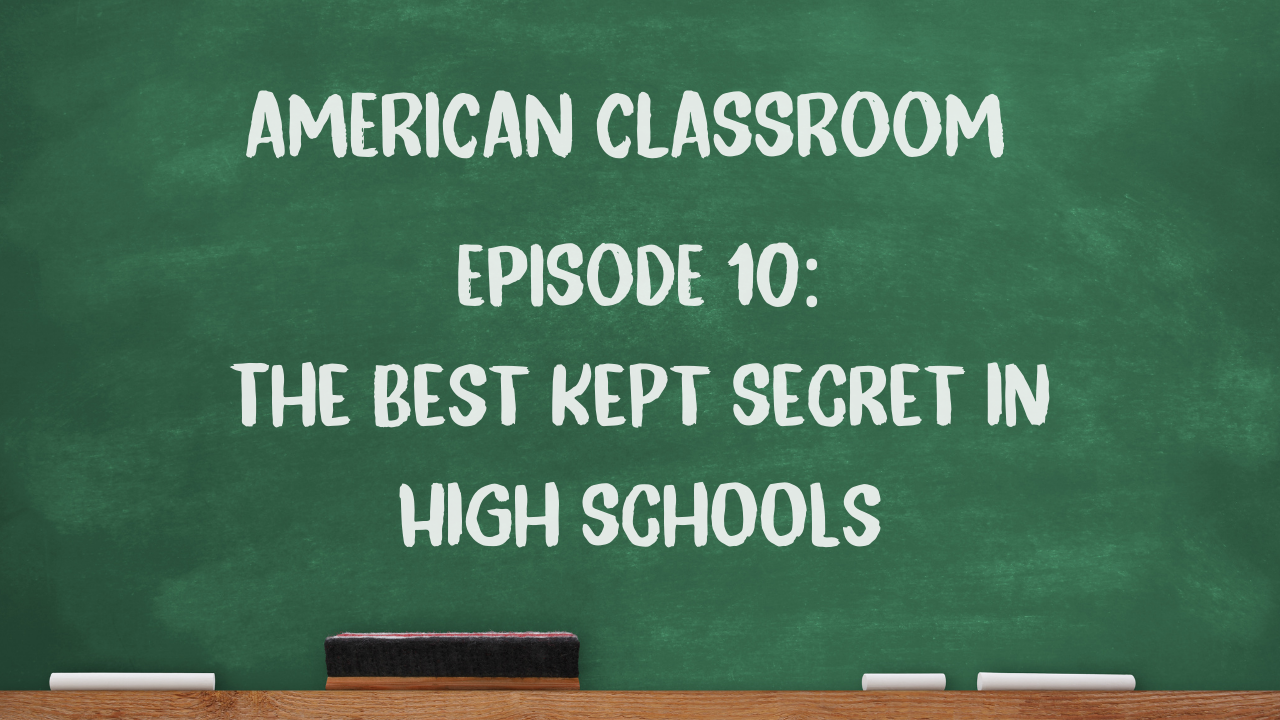
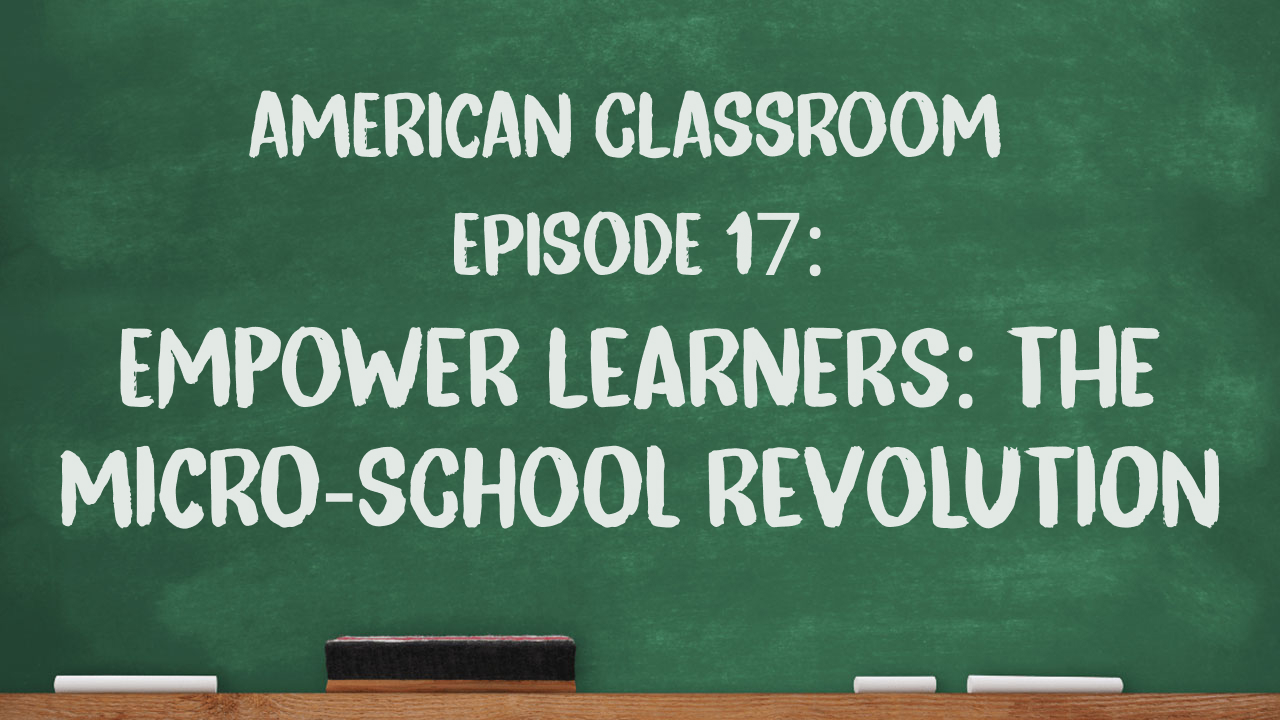
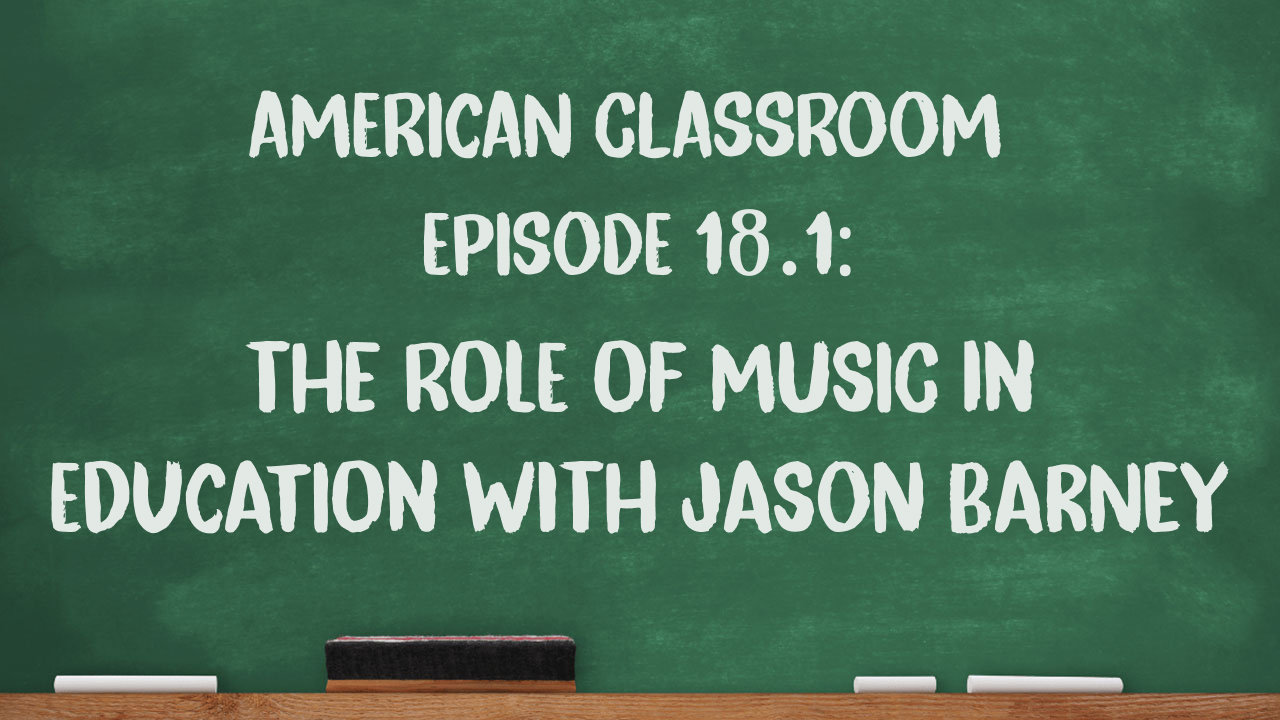
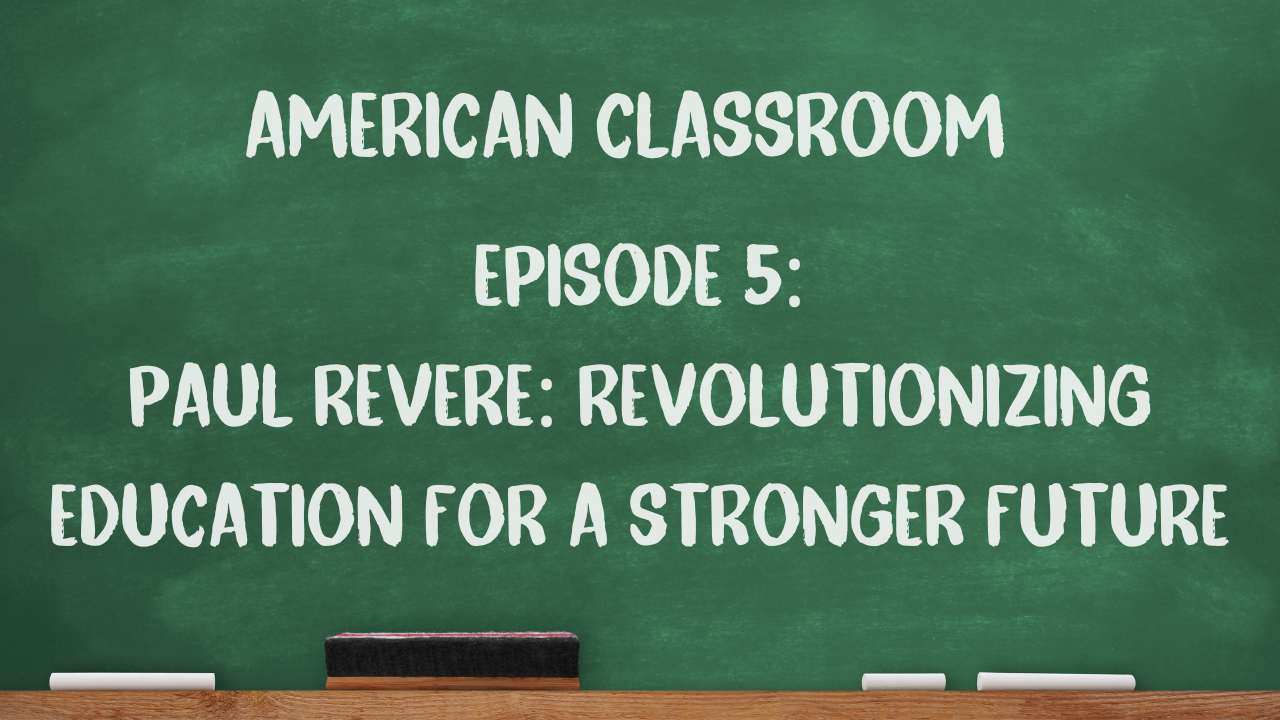
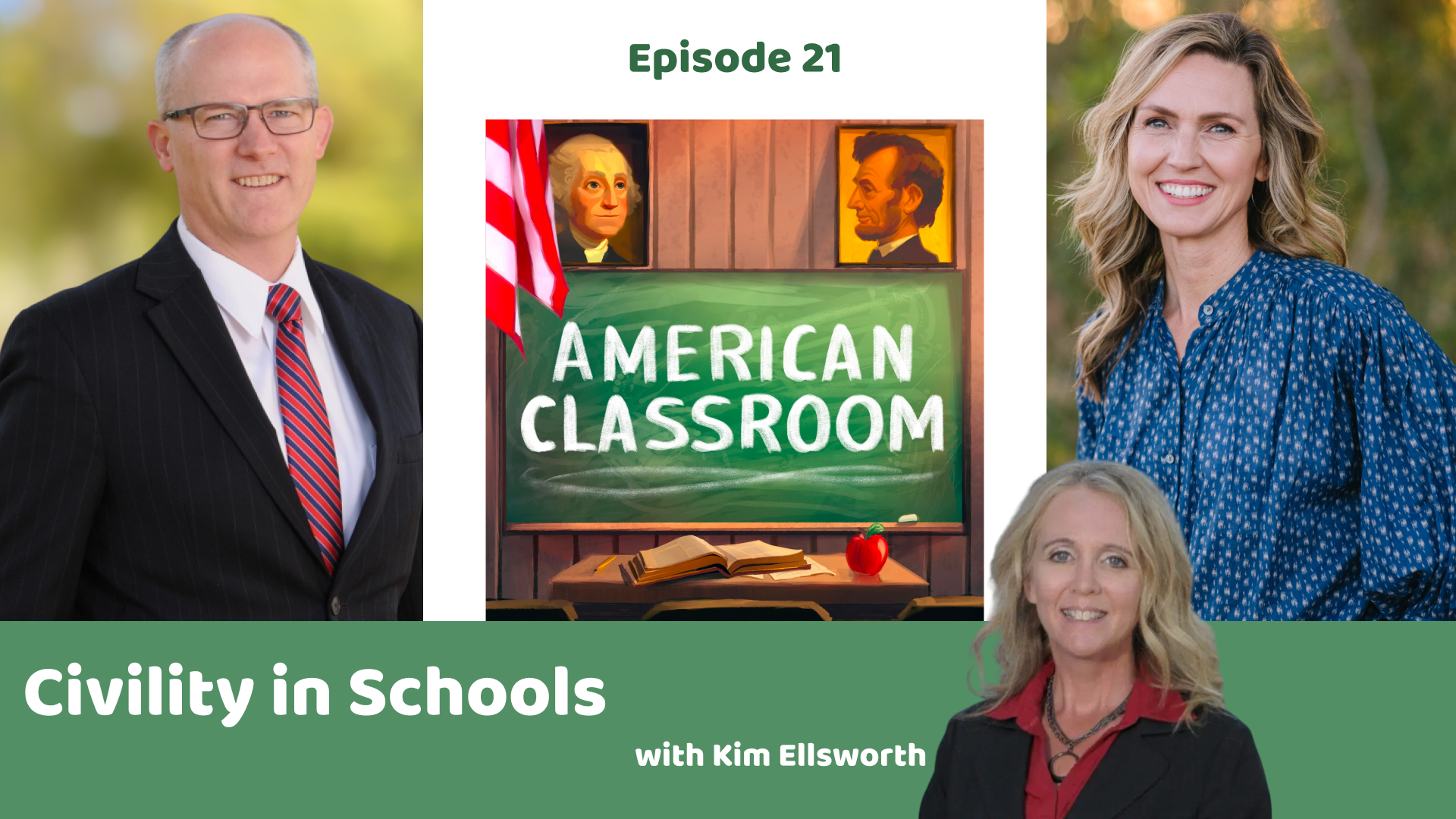
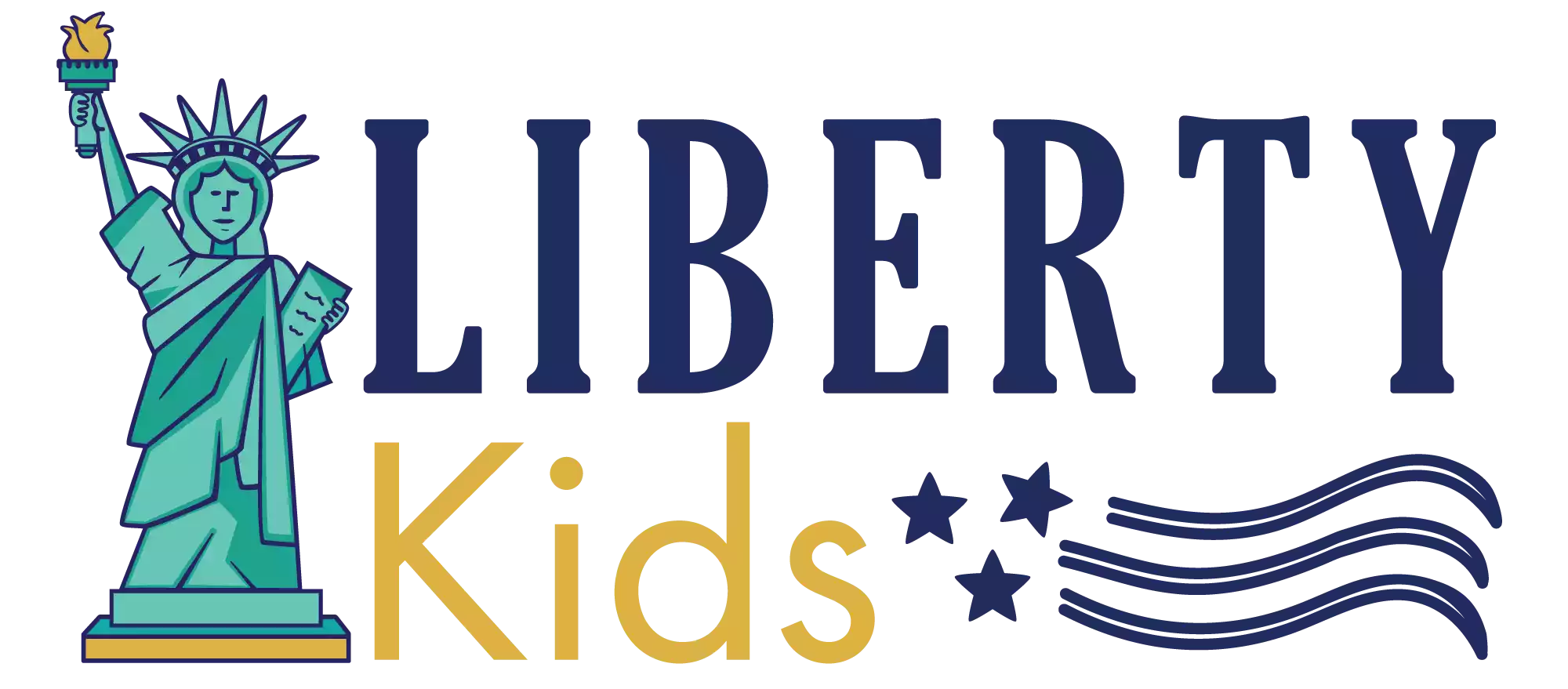
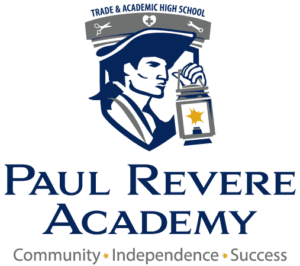
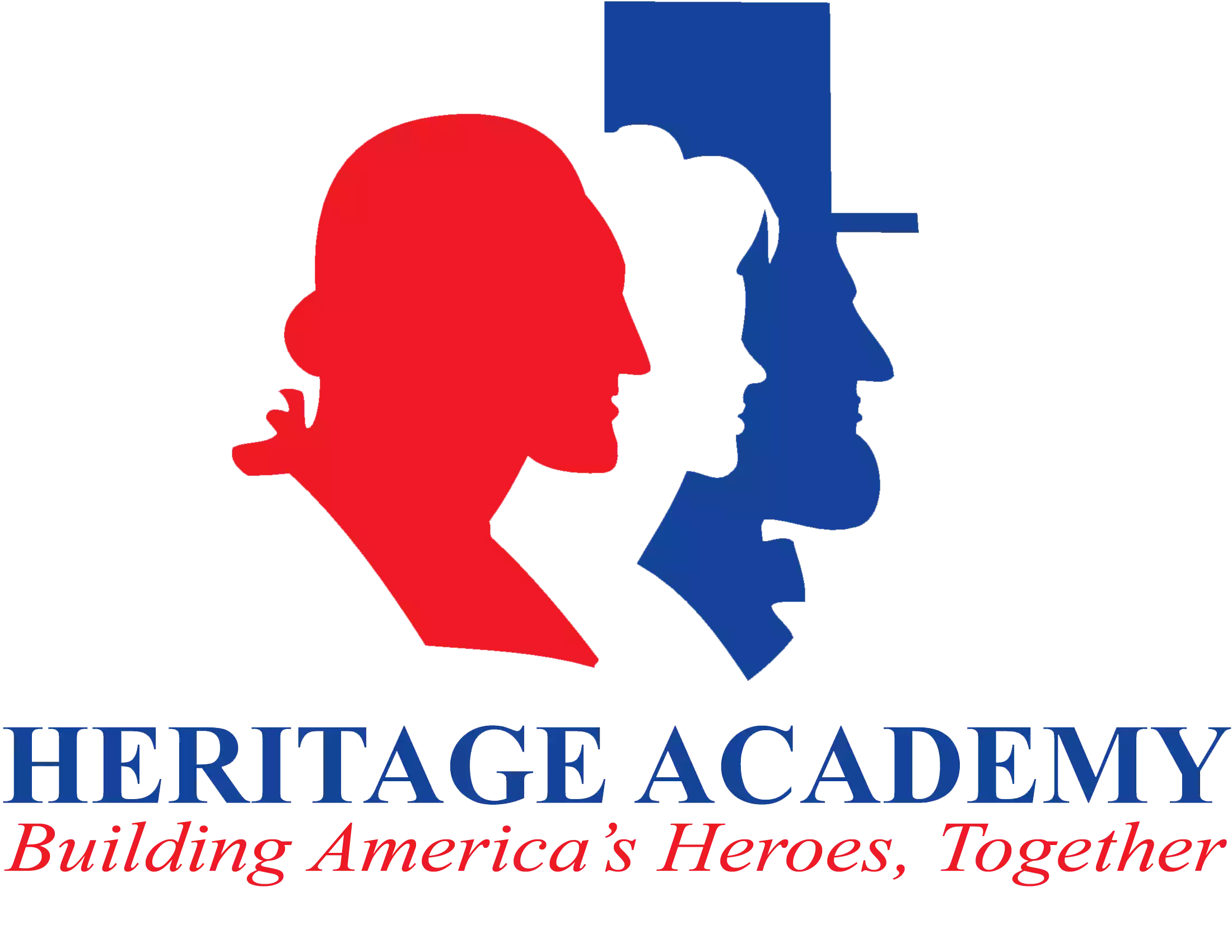
Comments